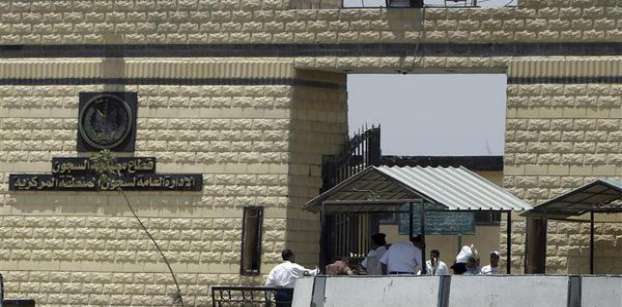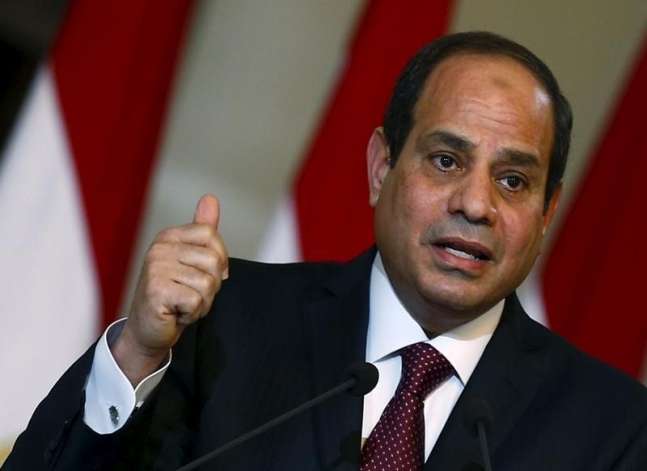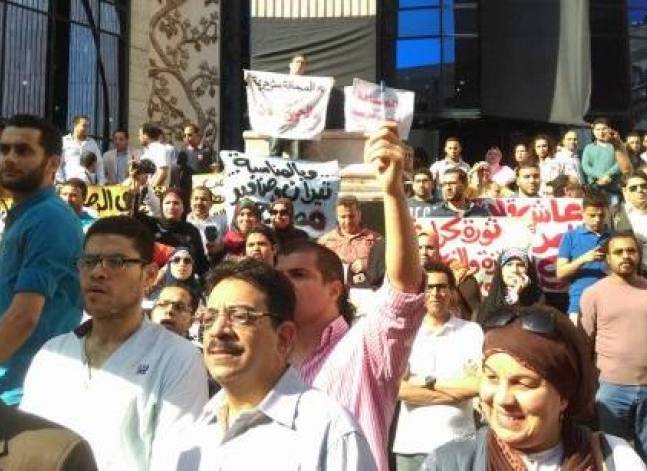Latest NEWS
- Aswat Masriya, the last word
- Roundup of Egypt's press headlines on March 15, 2017
- Roundup of Egypt's press headlines on March 14, 2017
- Former Egyptian President Hosni Mubarak to be released: lawyer
- Roundup of Egypt's press headlines on March 13, 2017
- Egypt's capital set to grow by half a million in 2017
- Egypt's wheat reserves to double with start of harvest -supply min
- Roundup of Egypt's press headlines on March 12, 2017
Egypt has built 19 new prisons in five years - Rights group
CAIRO, Sept. 5 (Aswat Masriya) - Egypt has approved the construction of 19 new prisons since January 2011 amid an ongoing crackdown on freedoms, according to report released on Monday by the Arabic Network for Human Rights Information (ANHRI).
The number of prisons has risen in Egypt from 43 to 62 since 2011, when then-president Hosni Mubarak was ousted after a popular uprising against his rule.
Out of the 19 new prisons, 16 were built during the reign of Adli Mansour and Abdel Fattah al-Sisi, two under the rule of Mohamed Mursi and one during the transitional period led by the Supreme Council of the Armed Forces.
According to the report, prisons across Egypt are bursting at the seams due to “random arrests and unjust trials, in addition to the unfair laws passed after July 3, 2013,” when then-Defence Minister Sisi ousted Mursi following mass protests against the latter's rule.
Hundreds have been arrested for breaking the controversial assembly law issued during the transitional months under then-Interim President Mansour. The law imposes restrictions on protests and stipulates that protesters must obtain a permit from the interior ministry beforehand.
The report also ascribed the government’s need for new prisons to the extension of pre-trial detention periods, which should not exceed two years, according to the law.
Photojournalist Mahmoud Abu Zeid, widely known as Shawkan, is among those who exceeded the legal maximum period in pre-trial detention, having spent over two years in prison before he was referred to court in December 2015.
There are no official statistics on the interior ministry’s website regarding the number of inmates in Egyptian prisons, but head of the Prison Authority Mostafa Baz said in a televised interview in May 2016 that the number of prisoners stands at 80,000.
However, a source at the Prison Authority, who preferred to remain anonymous, told ANHRI that Egyptian prisoners totaled over 106,000 prisoners, 60,000 of whom are political prisoners, despite security officials repeatedly asserting that Egyptian prisons were free of political prisoners and detainees.
According to the report, the post-July 3 period, as well as the period of sectarian violence during the early 1990s, are the only periods during which the number of political detainees exceeded that of criminal detainees in Egypt.
The report said that the Egyptian regime needs to recognise the problems that arise from absence of law and accountability policy, saying that “stability may come through repression, or through justice and the rule of law, and the latter is more lasting.”
“The government builds new prisons, detains larger number of activists, at a time when the country suffers an economic crisis and is reluctant to build hospitals, schools and public libraries,” the report read.















